Being On Top of Music Trends in 2022
We speak to experts in the music industry about the biggest trends of the moment, and how musicians can benefit from knowing them.
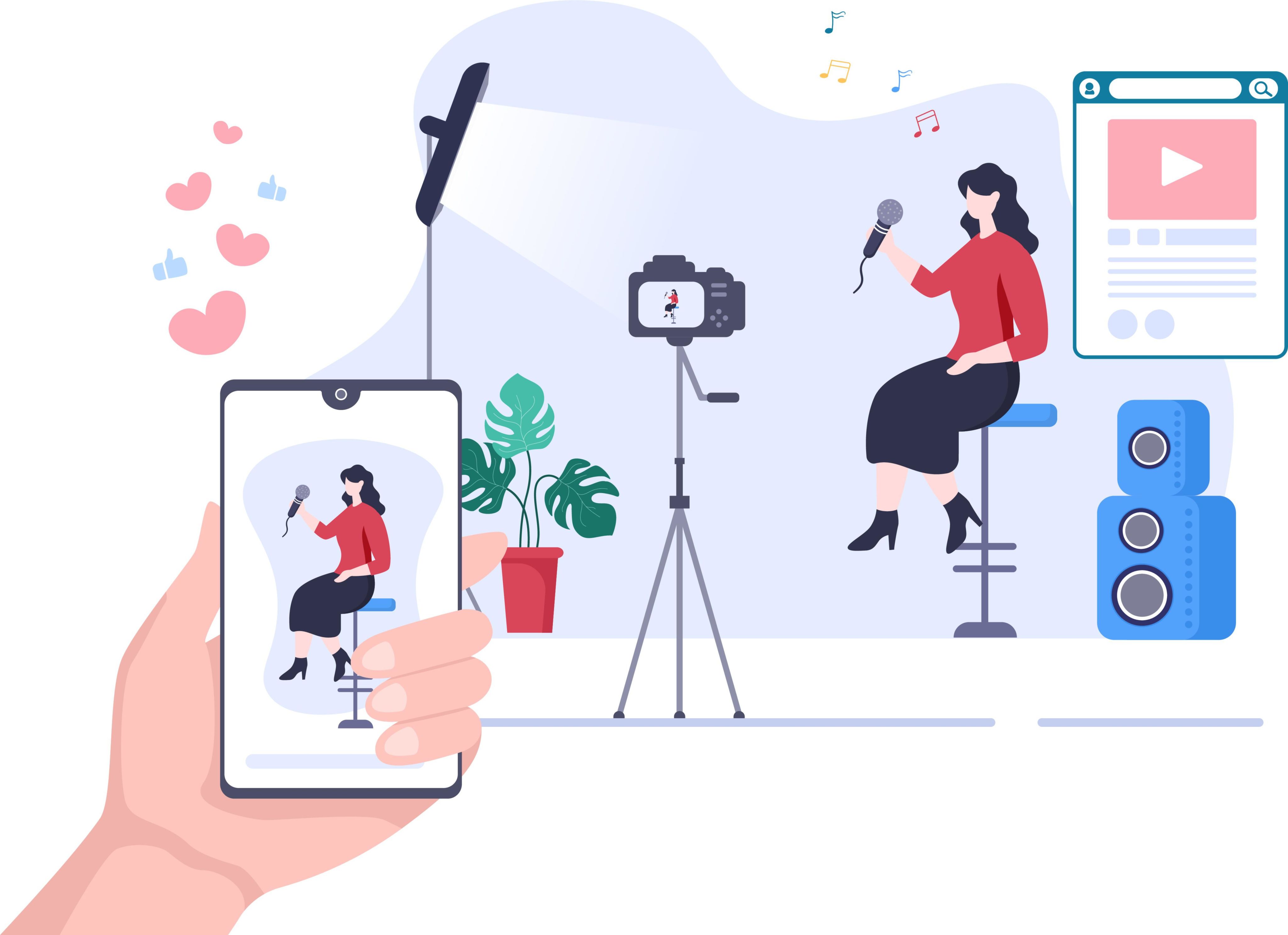
‘‘When you're 15 minutes late to the PinkPantheress concert and it's over already’’ was a joke that circulated social media when the artist released her debut mixtape to hell with it at the end of last year, where the 10 song tracklist came to a total runtime of under 19 minutes.
This could be seen as just one of the many trends in the music landscape at present – more on that later.
when you’re 15 minutes late to the pinkpantheress concert and it’s over already
— Raymond💞 (@notmeraymond) October 18, 2021
The last few years for music have been interesting to say the least. People having more time than ever over lockdowns led to the way we discover music shifting, as it will continue to do.
It can be difficult to keep up with where the industry is headed, both musically and in terms of marketing, so let’s try and break it down.
The power of the internet means people can listen to practically anything and everything and can find their niche sub-genres in an instant. There will always be mainstream trends in music that come and go, but there is not one genre that you should stick to if you wish to be spotted. Being yourself and releasing the music you want to release is often far more important and is also a lot easier in this generation.
Now, the marketing side. Let’s get the big one out of the way - TikTok is an absolute giant and undoubtedly the most influential force for music in 2022. It has not only been mammoth for artist discovery, but also has created the resurgence of many previous hits that have now been introduced to a new generation of fans in a way nothing else has ever before.
This means that it is more important than ever to nail your presence on this platform, which we dive further into in this article.
TikTok has naturally had its influence on how music is made though, too. Its short-form content has further influenced people into making shorter music, which has now become a typical music trend, with many songs getting to the hook as soon as possible, and often wrapping-up at under 3 minutes in run time. This has been happening since the streaming age took over, but TikTok has only accelerated this.
Bobby Owsinski has written over 20 books in the field of music and has worked in the music industry, and said to us: ‘‘While I’m sure some of the changes in song form comes from intentionally making songs shorter to collect more streams, I think the basis for the trend is how music is created and what our ears want today.
‘‘Long intros and outros were originally built into a song for radio disc jockeys to talk over. Obviously, that’s no longer needed so that’s 30 seconds shaved off right away. Solos aren’t popular anymore so that’s another 30 to 45 seconds less. It is a natural evolution of song form for the times.’’
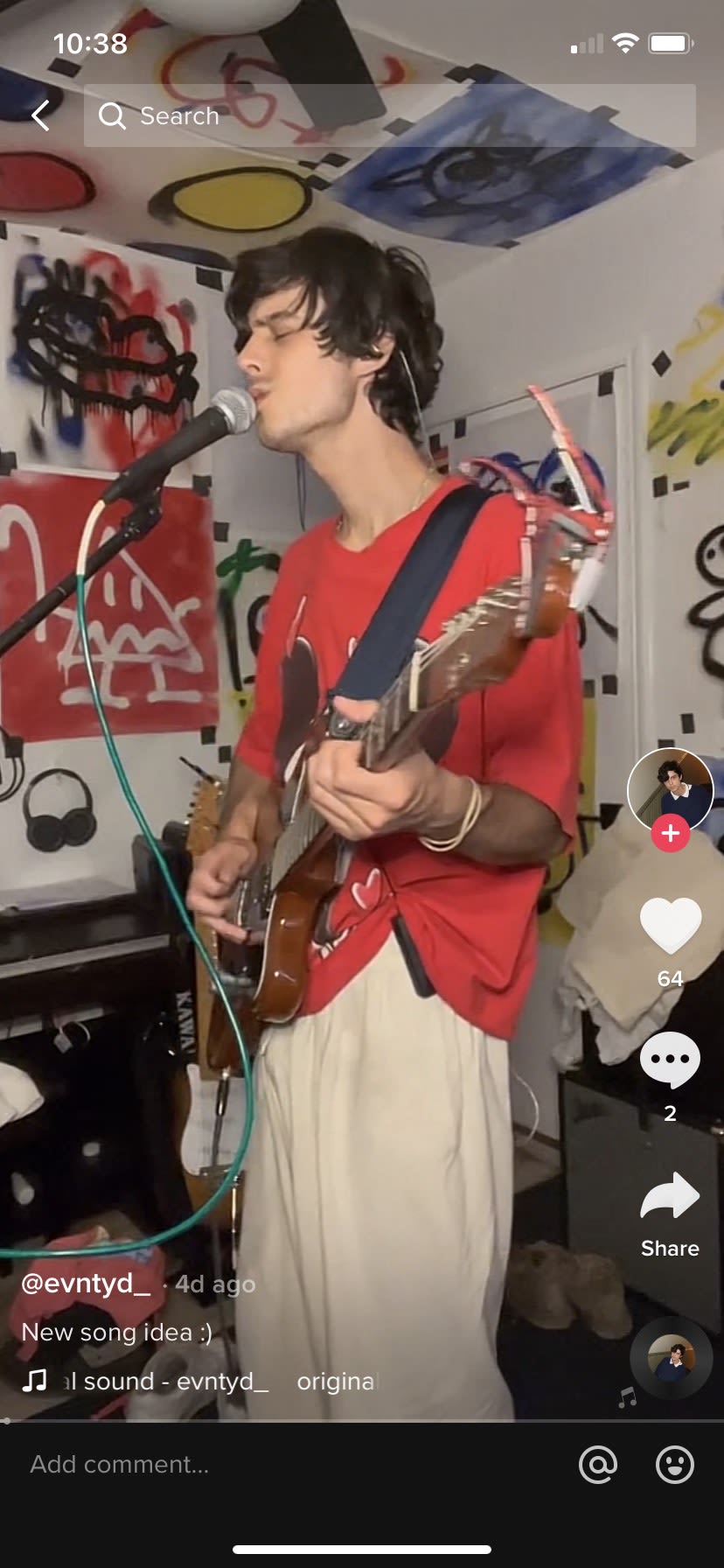
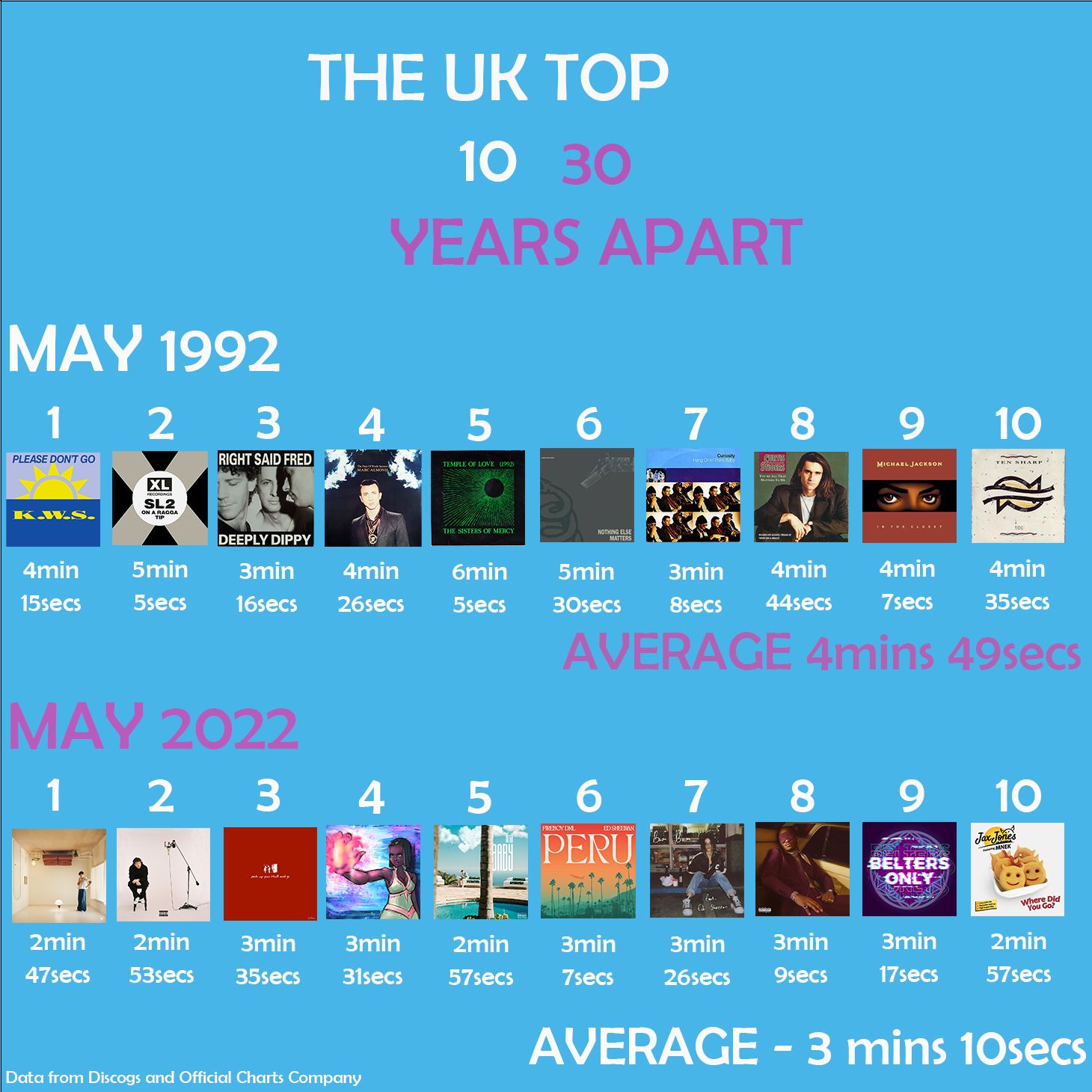
While this might make it sound like people’s attention isn’t there, it is quite the opposite. There is an active audience who are discovering their new favourite artist, whether they realise it or not. ‘‘The hard part isn’t getting the attention but keeping the interest and building an army of followers who believe in you while they are bombarded with messages and adverts every day,’’ said Damian Keyes, a musician and teacher who runs the Damian Keyes Music Business Academy advising independent artists.
He continued: ‘‘Every artist now has more control than ever before but with that comes a long list of skills and responsibilities including management, organisation, creativity, consistency, communication and most importantly standing for something people believe in and portraying that in a way people buy into.
‘‘Becoming an artist is no longer split into music vs marketing, it is about artistry and bringing value as often as possible while being able to monetise and reap the rewards from your art’’ Keyes added.
We now know how important it is to find what makes you different nowadays, which can feel difficult to do in a market that can often feel so saturated. How do you do it?
‘‘I think you can only be so "different" in how you present yourself in a saturated market,’’ says David Nguyen, who runs the website D4 dedicated to music marketing for independent musicians. ‘‘We have to be careful with not being too different because psychologically, humans like what's familiar to us, but also if you have to really think about how to be different, then it might not be authentic.
On the point of needing to put your own spin on things to stand out, he continued: ‘‘I think trying things and being a bit experimental can improve your chances when you're still trying to make a name for yourself in such a saturated space.
‘‘On the other hand, there are people who follow the trends of the popular sound at the time, intentionally or subconsciously, and can still blow up. In the case of putting out original music, you're naturally putting your own spin in the style, genre, type of music you're doing.’’
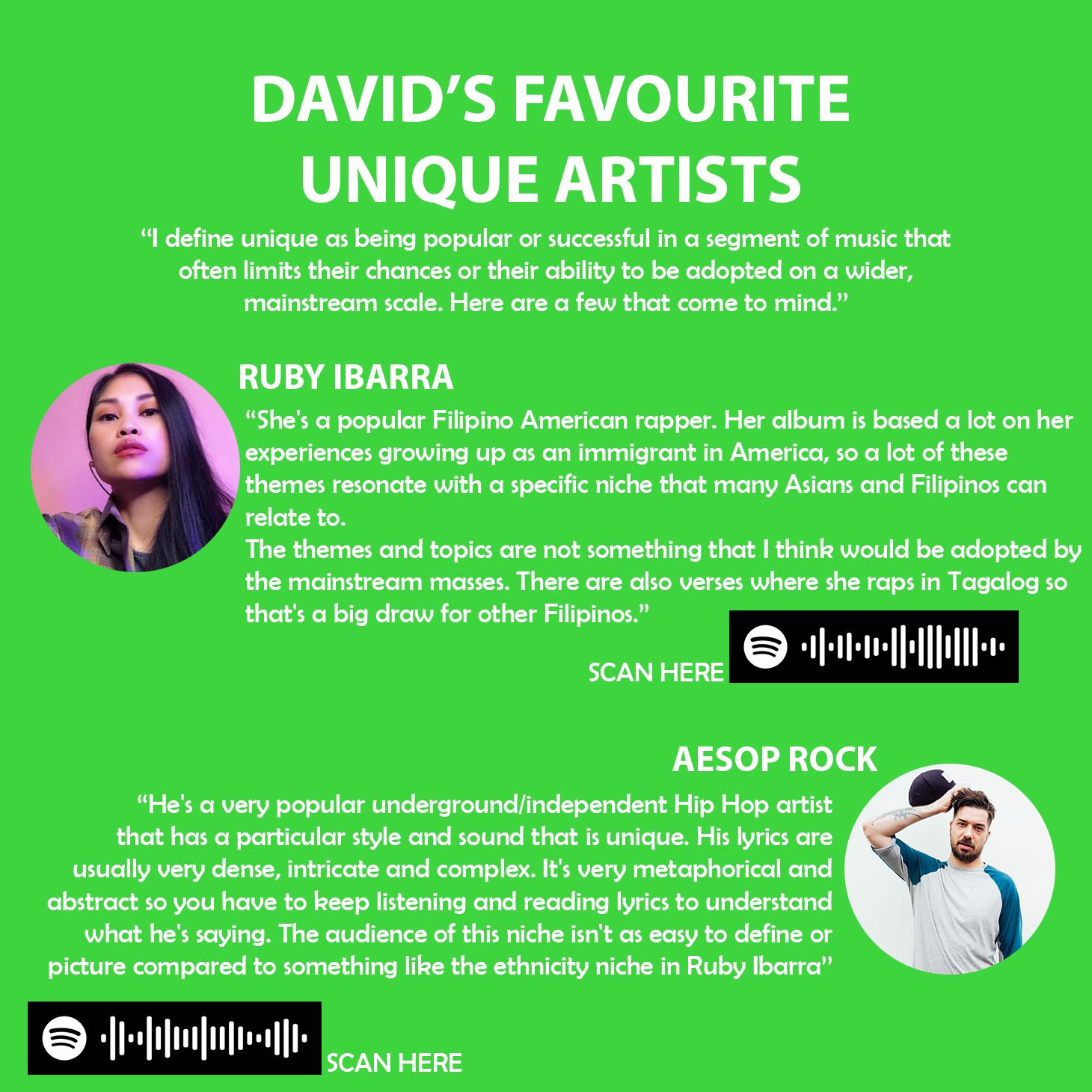
Jonathan's video on finding your niche in the music industry.
Jonathan Miller is a musician who also uploads music analysis and tips and tricks videos to his YouTube channel. He believes that authenticity is integral to success, adding: ''What separates artists are minuscule details that involve a lot of soul-searching and reflect how well the artist knows themselves. Young people value artists that write their own music, that tell their own stories, and because they grew up with the internet they know how to spot “fake” faster than anyone else. Millennials and Gen Z want originality and relatability.
''If a musician wants to keep things relatively minor and not put their own spin on things, in today’s music world, I don’t believe that will hit as well as they might hope. Audiences today want to connect to a real person.''
Possibly the scariest development of recent years is artificial intelligence music, where algorithms that create their own music based off previous releases use a formula to pump out a song from examples of what has worked previously. But with that also comes a lack of artistry and identity that only a musician who has written their own track from personal experiences can match.
The age of social media also presents musicians as human rather than a celebrity. Seeing what musicians are up to through their stories, catching up with fans in Q&As and livestreams, and even paid-for personalised video content through the likes of Cameo, Patreon and OnlyFans are all things that have almost become expected by fans from a public figure in 2022. People want to interact with their new favourite artist, which means a personal approach when it comes to social media will get more people on board quicker than you may expect.
James Rooney, from the music duo Hoofa, decided to start a Patreon after fans began asking for unreleased tracks. He said: ‘‘It was a way of sharing unreleased music without the kind of pressure of the big release on Spotify, and also letting our fans feel like they're in a tight knit community with something special gained from it as it is not just something that everyone else has.
‘‘I think if you've got a community and you're prepared to put the effort into it, it is certainly worth doing.’’
Rooney also cites Twitch as a great platform for musicians to capitalise on, adding: ‘‘People listen to Spotify and expect it to be free. But when people watch Twitch, they expect to pay, so if you're looking at music as another form of content creation, then Twitch is actually the biggest market opportunity seen since MySpace.
‘‘I genuinely believe that in four or five years' time, you won't be able to speak about launching a band without speaking about Twitch in the same sentence.’’
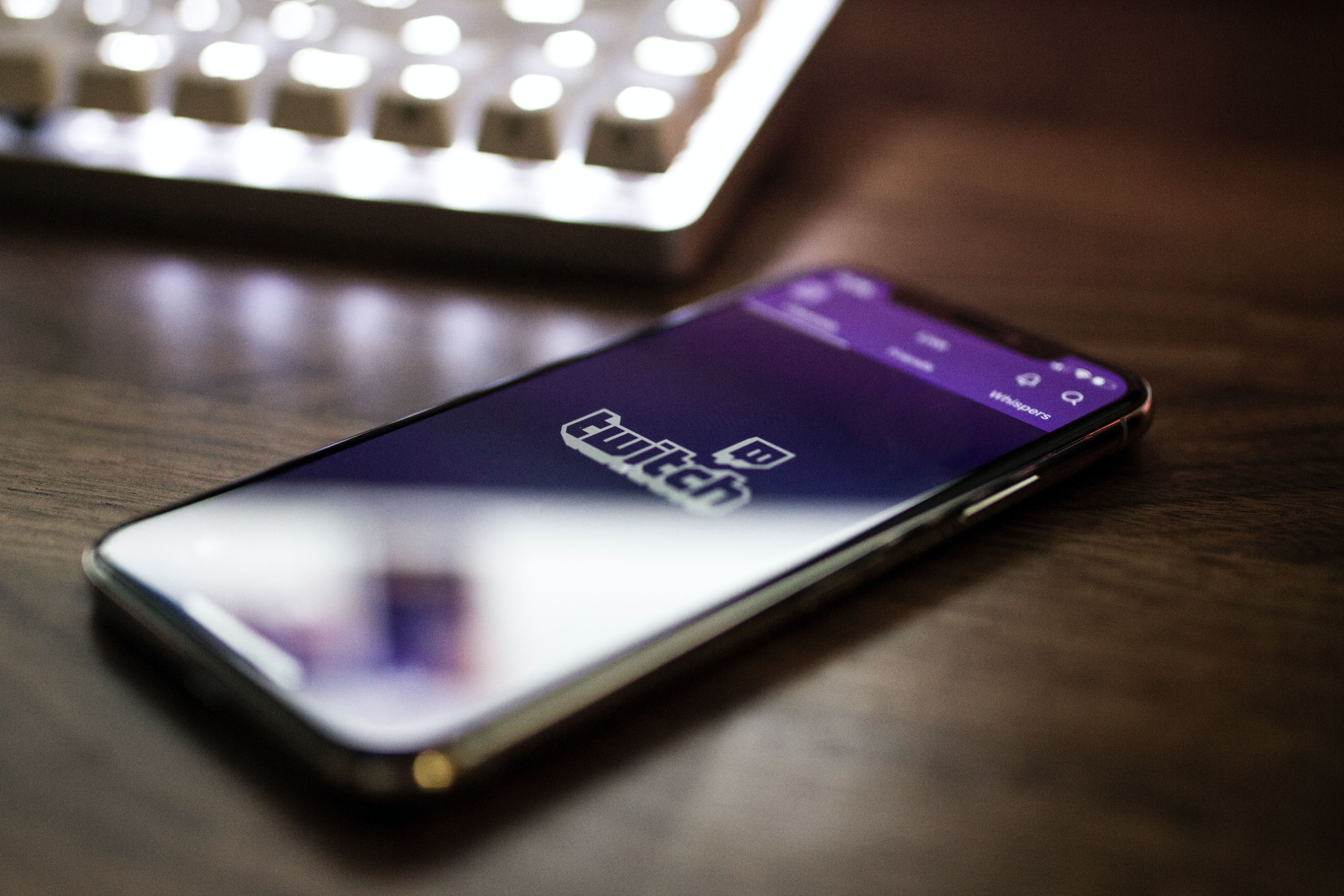
Photo by Caspar Camille Rubin on Unsplash
Photo by Caspar Camille Rubin on Unsplash
